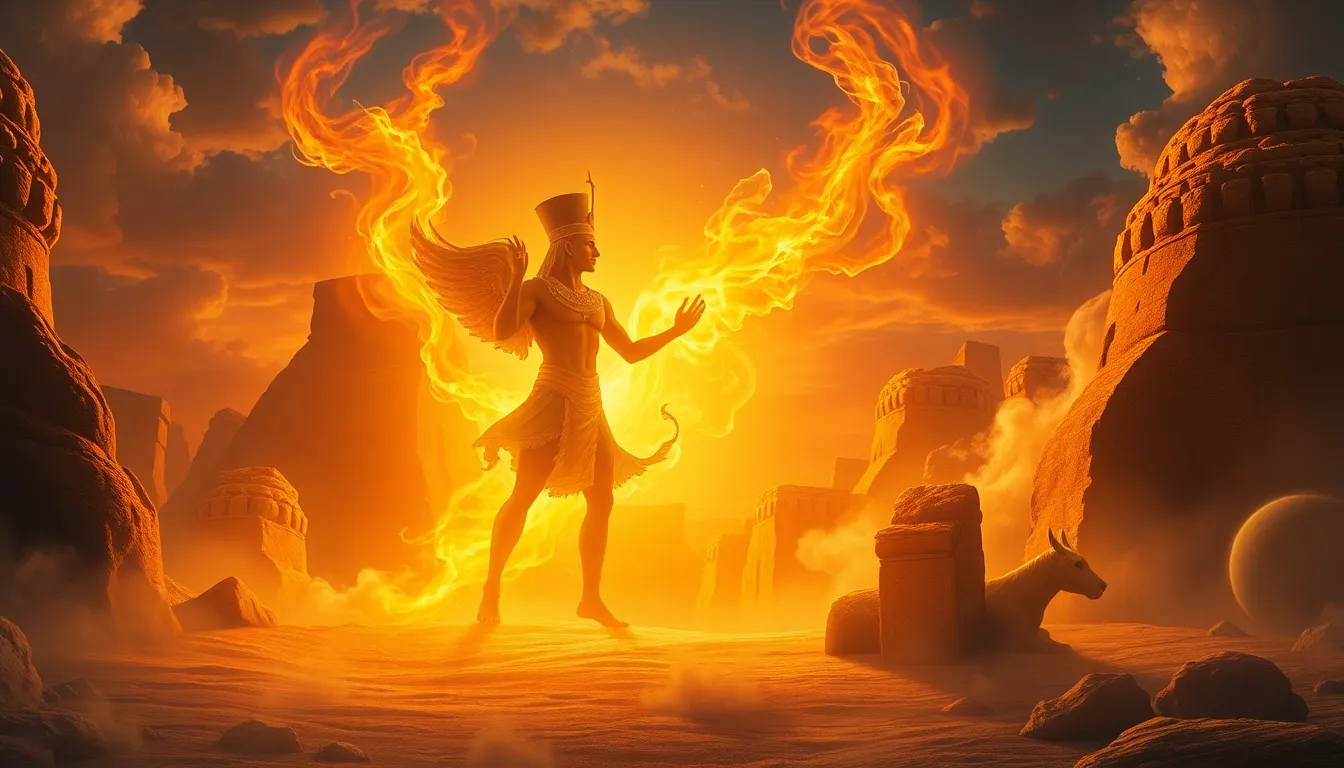The Myth of the Divine King: Stories of Transformation
I. Introduction
The concept of the Divine King has been a pervasive theme throughout human history, symbolizing the intersection between the divine and the earthly. This archetype represents a ruler who embodies divine qualities and serves as a mediator between the gods and the people. The Divine King is often portrayed as a figure of immense power and wisdom, tasked with maintaining order and justice within their realm.
This article aims to explore the transformative narratives surrounding the Divine King myth. By delving into its historical context, archetypal characteristics, and cultural variations, we can gain insights into how these stories resonate with our understanding of leadership and personal transformation.
II. Historical Context of the Divine King Myth
A. Origins of the Divine King concept in ancient civilizations
The origins of the Divine King concept can be traced back to ancient civilizations, where rulers were often seen as divinely ordained. In Mesopotamia, for example, kings were believed to be chosen by the gods, tasked with upholding cosmic order. This notion was prevalent in cultures such as Sumer, Akkad, and Babylon, where kings like Gilgamesh were celebrated for their heroic deeds and divine ancestry.
B. Key figures and cultures that contributed to the mythology
Various cultures contributed to the development of the Divine King myth, including:
- Ancient Egypt: Pharaohs were considered gods on earth, exemplifying the divine kingship through rituals and monumental architecture.
- India: The concept of Dharma in Hinduism presents kings (Rajahs) as upholders of cosmic law and righteousness.
- Greece: Figures like Hercules and Theseus embody heroic qualities, bridging the gap between gods and mortals.
III. The Archetype of the Divine King
A. Characteristics of the Divine King in myth and literature
The Divine King archetype possesses several key characteristics, including:
- Divine Ancestry: Often born of or chosen by the gods, enhancing their legitimacy.
- Heroic Qualities: Courage, wisdom, and strength are often emphasized.
- Restorer of Order: The king’s role is to maintain harmony and balance within the kingdom.
B. Symbolism associated with divine kingship
The symbolism of divine kingship is rich and multifaceted, often representing:
- Light and Darkness: The king embodies light, dispelling chaos and ignorance.
- Life and Death: The king’s authority is tied to the cycles of nature, including agriculture and fertility.
- Justice and Law: The king is the source of justice, maintaining societal order.
IV. Transformation Through Trials
A. Stories illustrating the transformative journey of the Divine King
Many narratives highlight the transformative journeys of Divine Kings, showcasing their growth through trials and tribulations. A notable example is the epic of Gilgamesh, where the king undergoes profound changes after facing the loss of his friend Enkidu. This journey of self-discovery leads him to understand the value of life and the inevitability of death.
B. The role of adversity and challenges in these narratives
Adversity plays a crucial role in the transformation of the Divine King. Trials often serve as catalysts for personal growth, revealing the king’s vulnerabilities and strengths. Through challenges, the Divine King often learns the importance of humility, compassion, and the responsibilities that come with power.
V. The Divine King in Different Cultures
A. Comparative analysis of the Divine King myth across various cultures
The Divine King myth manifests uniquely across different cultures, yet common themes emerge. The intertwining of divinity with rulership is a prevalent motif, showcasing the universal human desire for authority that transcends mere mortal limitations.
B. Case studies: Examples from Mesopotamia, Egypt, and Mesoamerica
Some notable examples include:
- Mesopotamia: Gilgamesh, the semi-divine king, represents the struggle between human limitations and divine expectations.
- Egypt: Pharaohs like Ramses II embodied divine authority, often depicted in monumental art and inscriptions as gods in human form.
- Mesoamerica: The Maya and Aztec civilizations revered their rulers as divine intermediaries who influenced agricultural cycles and warfare.
VI. Modern Interpretations and Adaptations
A. The relevance of the Divine King myth in contemporary storytelling
The Divine King myth remains relevant in modern storytelling, reflecting ongoing themes of leadership, power, and transformation. Contemporary narratives often reimagine this archetype to address current societal issues, exploring the complexities of authority and morality.
B. Examples from literature, film, and other media
Examples of modern adaptations include:
- Literature: Books such as “The Once and Future King” by T.H. White reinterprets the Arthurian legend, emphasizing themes of power and responsibility.
- Film: Movies like “The Lion King” depict the journey of a young king facing his past and learning to embrace his role as a leader.
- Video Games: Games like “God of War” explore the relationship between divine figures and human struggles, often featuring kings who must navigate their destinies.
VII. Psychological and Philosophical Implications
A. The impact of the Divine King myth on individual identity and personal transformation
The Divine King myth encourages individuals to reflect on their identities and the roles they play in society. The journey of the Divine King often mirrors personal struggles, inspiring individuals to embrace their own transformative journeys.
B. Exploration of philosophical themes related to power, divinity, and humanity
Philosophically, the Divine King myth raises questions about the nature of power and its implications for humanity. It explores the delicate balance between divine authority and human fallibility, prompting reflections on morality, governance, and the human condition.
VIII. Conclusion
In summary, the myth of the Divine King offers rich narratives that explore themes of transformation, power, and identity across cultures and time periods. From ancient civilizations to modern interpretations, the stories of divine kings resonate deeply with the human experience, highlighting the enduring legacy of these archetypal figures in shaping cultural narratives. As we continue to navigate our own journeys of transformation, the lessons derived from the Divine King myth remain profoundly relevant, reminding us of the complexities of leadership and the potential for personal growth amidst adversity.




